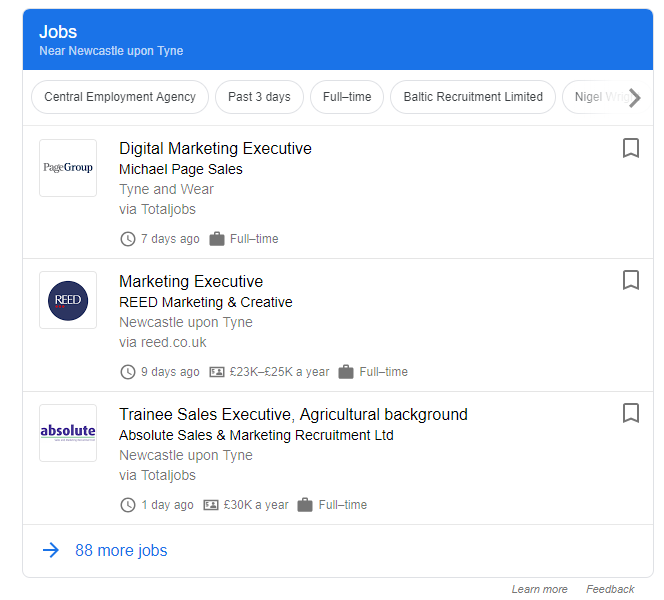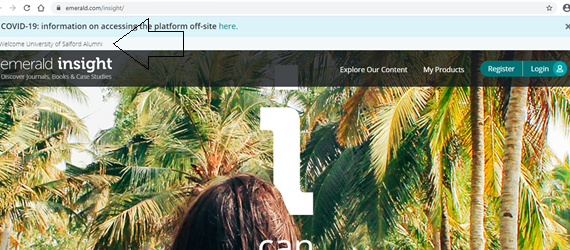As a fresh graduate, it’s likely you have very little that you can use as an accurate benchmark when it comes to setting your own salary expectations. Even if you have worked full-time before, the industry, role and business you previously worked in may be very different from the role you are applying for, and you now have a brand new formal qualification that can set you apart (and does hold value). This makes answering questions around salary in a job interview setting more difficult for you than most. So how can you prepare to answer this question? And what would be the perfect response?
In this post, we cover how you can effectively prepare to answer this question and offer our take on several responses that you might want to consider as options to have up your sleeve.
Step 1: Carry out thorough research
Not every advertised role will have a salary or salary bracket attached to it. In fact, most advertised job vacancies these days don’t. This means that chances are, the role you are applying for didn’t have an advertised salary either, but don’t let this deter you from doing your research. Remember to look for job listings within your local area (or the area you plan to work in), as this can significantly impact your salary expectations. For example, your salary expectations should be higher if applying for roles in the London area.
You can scour a number of free online resources for similar job roles listed within the same or equivalent industries until you find a handful that do include salary guidelines within the job description. We recommend looking in the following places for this information:
Google Jobs: Google now has ‘Google Jobs’, which will use your location and job title search to deliver a number of listing results. These often automatically pull through salaries that are mentioned within the job specs.

- Job Websites: As you can see from the above snippet, Google can pull through information from vacancies listed on the most popular job websites, but it is also well worth searching for yourself to take a closer look at the description of each role. For example, when you look closely at the trainee sales executive role listed at £30k, you can see that the job description actually does not reflect a junior role. The ad states that the candidate must have a ‘strong background in business to business sales’ and ‘experience within agricultural / garden machinery products’. It is immediately clear from a quick read that this is not a role for a graduate with limited experience and so the salary expectation should be discounted.
- LinkedIn: LinkedIn Jobs allows you to search by keywords and location to show you job vacancies that may be of interest to you. Again, some listings will include salary insights that will help you to answer that all-important question, but if not, then consider upgrading to LinkedIn Premium. LinkedIn Premium will give you an estimated salary for a graduate role within particular businesses and industries so may well be worth the investment. Better still, there is often a free trial on offer which you could make the most of when doing your research and then cancel so that you don’t get charged.
- Google Search: Nowadays if we’re not sure about something, we Google it – and there’s no reason why you shouldn’t have a quick Google when researching your salary expectations. There are 1,900 searches every month for the term ‘average graduate salary’, and the results reveal that leading graduate job board, graduate-jobs.com, estimates the average starting salary for graduates is £19,000 – £22,000.
- Visit Other Useful Websites: Other useful websites include employee review sites like Glassdoor.co.uk where current and past employees review their experience working within that company. Sometimes these reviews will also reveal the salary for a particular role. Alternatively, payscale.com is another useful tool which allows you to put in your job title and location to reveal the average salary in the area.
Step 2: Don’t Sell Yourself Short
When you really want a particular job and you are made to feel as though your salary expectation will either land you or lose you the role, it’s easy to sell yourself short. Revealing a lower salary guide than you would actually be happy with receiving in the hope that this will help you to secure the job is not always a good approach. Ultimately, this may make you unhappy in the role after the probation period is over, so make sure that the salary bracket you suggest is one that you would be happy with.
Step 3: Don’t Back Yourself into a Corner – Offer a Range Plus Options for Negotiation
By offering an exact number in answer to questions around salary, you have significantly limited your position in the negotiation process. Use your research to suggest a realistic band that you would be happy with, and ensure that you would still be happy with the lowest amount within that range. Ultimately, by volunteering information about your preferred salary band rather than an exact figure, you have not closed the door on the possibility of negotiating a little bit more once the interviewer has indicated that you are their preferred candidate. Offering a band also shows your prospective employer that you are flexible and willing to have an open discussion about the salary.
It’s also important to remember that there are other items aside from salary that can be factored into the negotiation process. For example, holidays, overtime, job responsibilities, contracted hours, pension contributions, health insurance, bonuses, a company car or other benefits can all be played into the negotiation process if appropriate for the role. You could also request a salary review be agreed either 6 or 12 months after you have started to give you the opportunity to prove yourself and then re-negotiate.
Step 4: The Answer: Consider Your Phrasing When Responding
Consider how exactly you will answer the question before you attend the interview. You don’t want to come across as defensive, arrogant or too matter of fact when answering. Instead you want to come across as polite, knowledgeable and pragmatic.
A combination of the below phrases may help you to craft your response:
“I’m confident that I would quickly be able to add value to the business and after carrying out some research my understanding is that a salary of between £XX,000-£XX,000 would be typical for the industry based on my skills and the role and responsibilities.”
“My salary expectations I feel are in-line with my experience and qualifications.”
“I would anticipate the salary for the role to be competitive within the current market.”
“If I’m a good fit for your business and this is the right job for me, then I am sure we can come to a fair agreement on salary.”
Step 5: What to do if you are not asked about salary
If you have not been asked about your salary expectations during the application process, then you may not want to leave finding out about the salary on offer until the job offer comes your way. Not having any indication of salary at all may mean that you are surprised by the salary you are offered with the job and can lead to disappointment. This is why it’s often better in the event salary has not been mentioned to bring it up yourself (politely) during the interview process.
Again, you could use some of the below phrases to help you approach this question:
“Would you be able to give me an indication of the salary band you had in mind for the role?”
“Should I be successful, I’ll need to relocate for this role – so would it be possible to get an indication of the salary band you have in mind as well as potential for progression opportunities?”
We hope the above information has been useful and helps you to answer some of the salary questions that you may face during the interview process. Should you need more advice when job hunting, visit the Career Advice section of our website which offers help CV writing, further study options and application and interview preparation.

 GRADUATE VOICE
GRADUATE VOICE 
 Twitter
Twitter Facebook
Facebook Google+
Google+ LinkedIn
LinkedIn